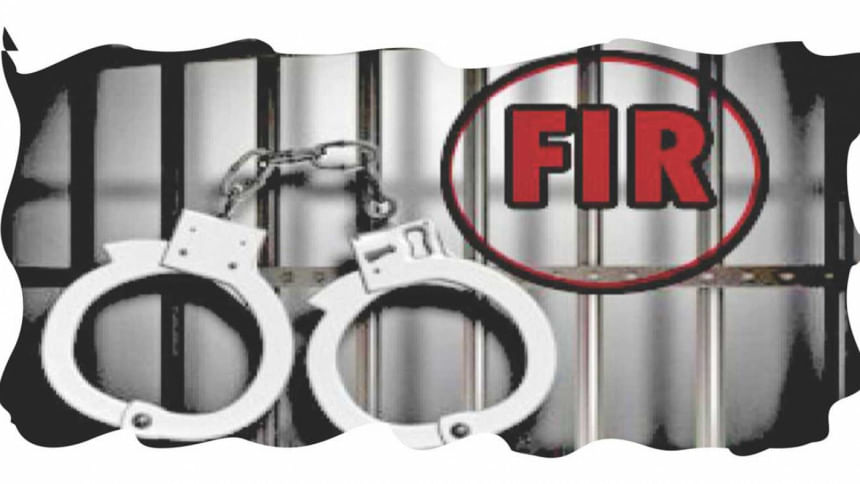Relief against failure to file case

Often people alleged that police is reluctant to take Ezahar or First Information Report (FIR) in police station for various reasons. If the concerned officer of a police station had denied receiving the case then the informant can file complaint case to the judicial magistrate straightly instead of filing the case to police station to get redress.
However, one can lodge a complaint case to the judicial magistrate court directly in case of a non-cognizable offence. Non-cognizable offences are those type of offences for which police cannot arrest an accused without warrant and for which police need to take prior permission from magistrate to investigate the matter as well and cognizable offence is the vice versa. If anybody brings information regarding the commission of a non-cognizable offence to the police station then the duty officer will take the matter as a General Diary (GD) and send the person to any of the following concerns, Chief Metropolitan Magistrate, Metropolitan Magistrate, Chief Judicial Magistrate, 1st class Magistrate or Specially empowered Magistrate depending upon the place of occurrence along with the GD.
Processes to lodge a complaint to the magistrate: The complainant should be in details including i) name and address of the accused, if known; ii) approximate time, date and place of occurrence; iii) enough description about suspect offenders; iv) sequential narration of every activity of the perpetrators v) present condition of the victim, vi) subsequent circumstances; vii) name of the witnesses, if any; viii) any previous linkage, history or threat to commit the offence; ix) types of injury, list of lost properties or other damage; x) reason of delay to file the complaint, if happened, xi) corroborate fact by witness, if possible etc.
Then the magistrate will administer an oath of the complainant and the witnesses, if any. Subsequently, the magistrate will testify them to about the real prospect of occurrence of the incident. At the end, the magistrate will record the matter and take their signatures on it. If it is proved latter that the complaint was fake, frivolous or vexatious then the complainant will be prosecuted by that magistrate.
Nonetheless, if any applicants file an application by mentioning the above matters in writing on white paper then the application will be granted instantly and there is no other formality to examine him on the fact. After taking cognizance of such complaint the court will record it in register and put a complaint registered case number on it. Hence it is also called as Complaint Registered (CR) case.
Oppositely, if the magistrate is not satisfied with the evidences produced before him or if the informant is failed to establish prima facie of his allegation then the court can dismiss such an application. However, the applicant can file a revision application to the Sessions Judge Court or in the High Court Division (HCD) within sixty days to get remedy against that decision.
Consequences of taking cognizance: After taking cognizance the concerned magistrate can serve summons to the accused to appear before it to defend the allegations. Alternatively, it may issue warrant to arrest. If the matter is involved with commission of a cognizable offence then the magistrate can direct the police to take the matter as a FIR. After getting such an order the police will record the matter as an Ezahar and initiate other necessary actions immediately.
On the other hand, if it is a non-cognizable matter then the magistrate may order the police to investigate the truth of the allegation. In that case the police will have same power as cognizable offence while investigating the matter. After completion of the investigation, police can submit final report due to lack of actuality of the fact.
The informant can file naraji petition against such final report or can apply for further investigation if they are not satisfied. However, the magistrate himself can inquire to testify the matter or may direct to conduct such judicial inquiry by his subordinate officer for further information.
It should be kept in mind that State will not involve in complaint registered case at initial stage. State may be involved after getting direction from the court to take the matter as an Ezahar.
Hence, one should not get worried when police refuses to take cases. Law opens alternative door to seek justice in magistrate court. This provision confines police's sole power and provides relief against their arbitrary act.
In reality, most of the poor, powerless and illiterate litigants are not always be able to supersede the police and take shelter of magistrate court due to many obstacles. So, the State should take proper steps to create more accessible justice system and also create awareness about one's legal rights.
THE WRITER IS AN ADVOCATE AT SUPREME COURT OF BANGLADESH .

 For all latest news, follow The Daily Star's Google News channel.
For all latest news, follow The Daily Star's Google News channel. 



Comments